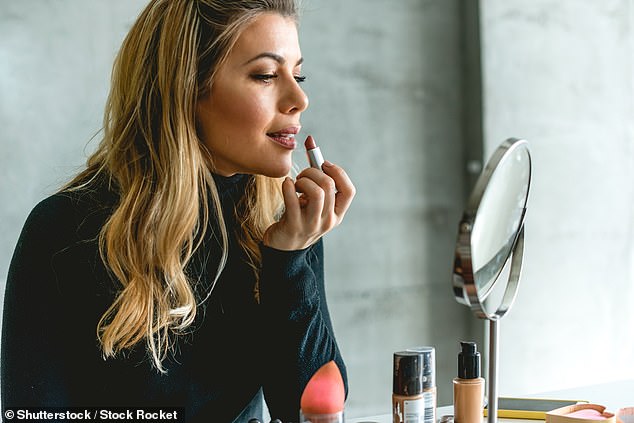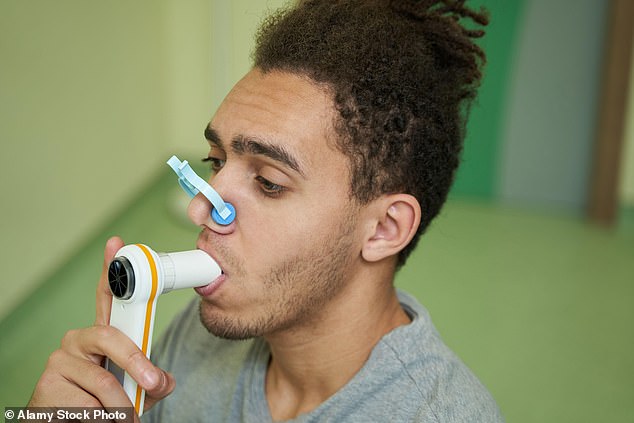Regularly wearing make-up may increase the risk of developing asthma in adulthood, a study has found.
Research has shown a potential link between those who use products such as lipstick, eyeshadow and mascara and an increase in late-onset cases of the chronic respiratory condition, which affects around 5.4 million people in the UK.
Women who used false nails, cuticle cream, blush and lipstick had a 47 per cent higher risk of being diagnosed with asthma, the study based on nearly 40,000 people found.
Just using blush and lipstick five times a week or more increased the risk by 18 per cent.
The researchers, from the US National Heart, Lung and Blood Institute, said the association did not prove the products caused the uptick in risk but did suggest common chemicals in make-up could have an effect.
Some are thought to weaken the immune system, while others – such as polyfluoroalkyl substances (known as PFAs), parabens, phthalates and phenols may interfere with the body’s hormones.
‘Our findings reinforce the need for regulation of personal care products and their components,’ the researchers said.
The study, published in the journal Environment International, used data gathered over 12 years, which was based on the use of 41 different beauty products.

Women who used false nails, cuticle cream, blush and lipstick had a 47 per cent higher risk of being diagnosed with asthma, the study based on nearly 40,000 people found (Stock photo)

The researchers, from the US National Heart, Lung and Blood Institute, said the association did not prove the products caused the uptick in risk but did suggest common chemicals in make-up could have an effect (Stock photo)
At the end of the research period, 1,774 of the women – around 4 per cent – had been diagnosed with adult-onset asthma.
Symptoms of the condition include coughing, wheezing, tightness in the chest and shortness of breath.
Overall, using the products was associated with a 19 per cent increased risk of asthma. Frequent use corresponded to a 22 per cent increase risk.
Previous studies have found that exposure to chemicals contained in beauty products during early pregnancy correlates with an increased risk of the baby going on to develop asthma in childhood. But little research has been conducted on the potential risk to adults.
‘Understanding the biological pathways through which EDCs (endocrine-disrupting chemicals) in PCPs (personal care products) may increase the risk of asthma is important for understanding disease development,’ the researchers said.
‘If our findings are confirmed in other large-scale multi-ethnic prospective studies, they support PCPs as a potentially targetable lifestyle factor to reduce the burden of adult-onset asthma among women.’
Dr Samantha Walker, director of research and innovation at Asthma + Lung UK, said: ‘We know that women get worse asthma than men and are more likely to be admitted to hospital, but it’s not clear why although we believe female hormones play a part.
‘More research is needed into this area so we can understand how to keep women well.’












